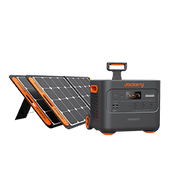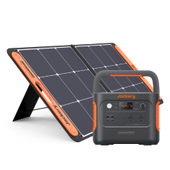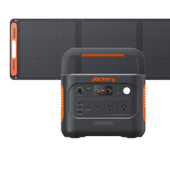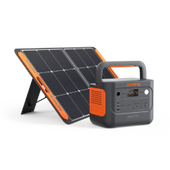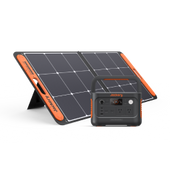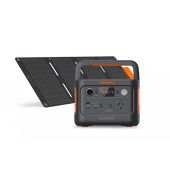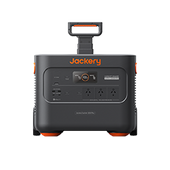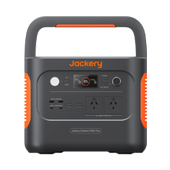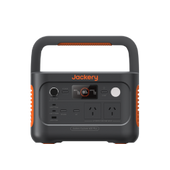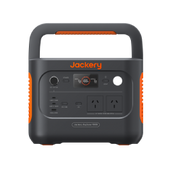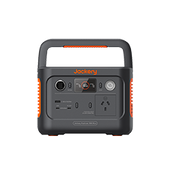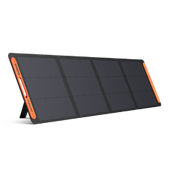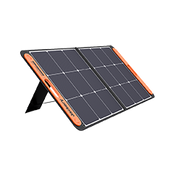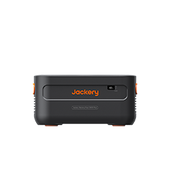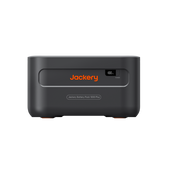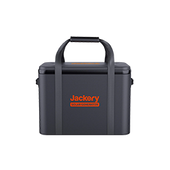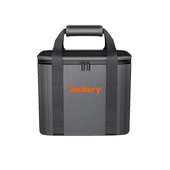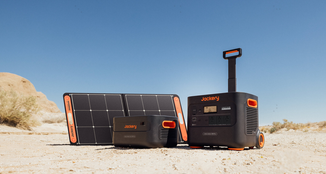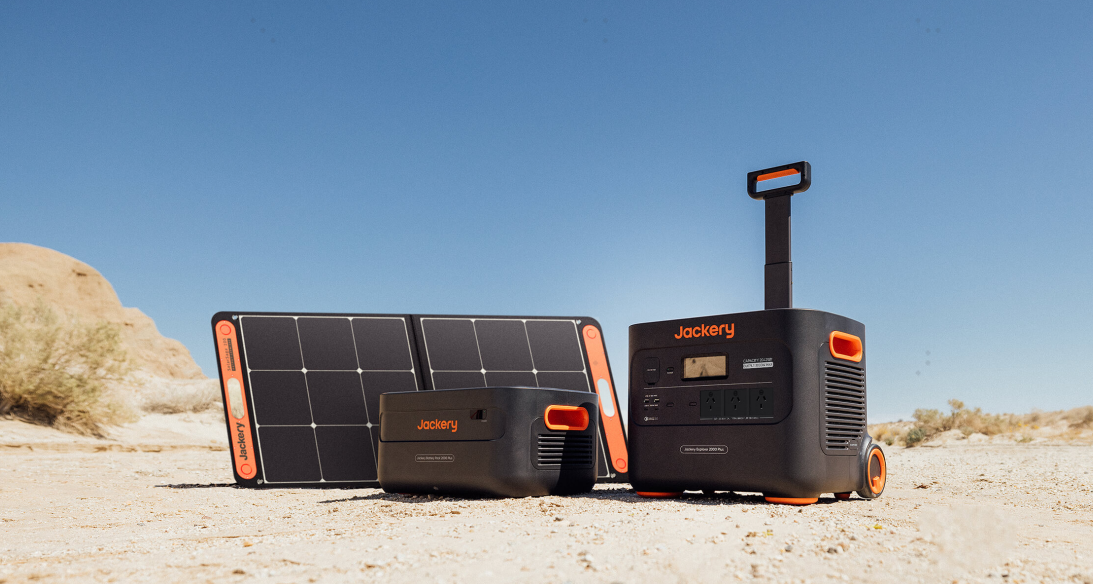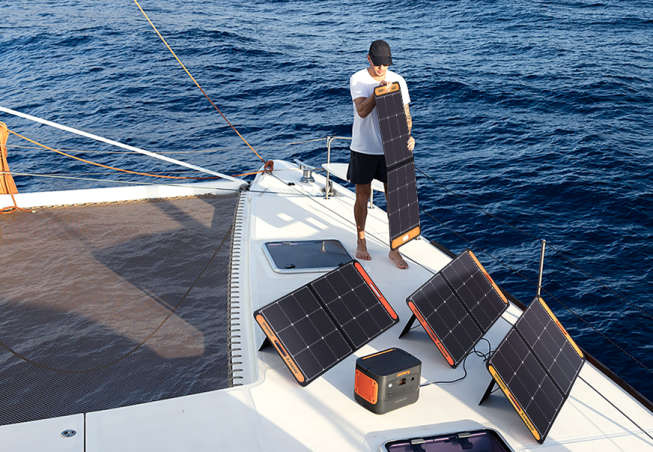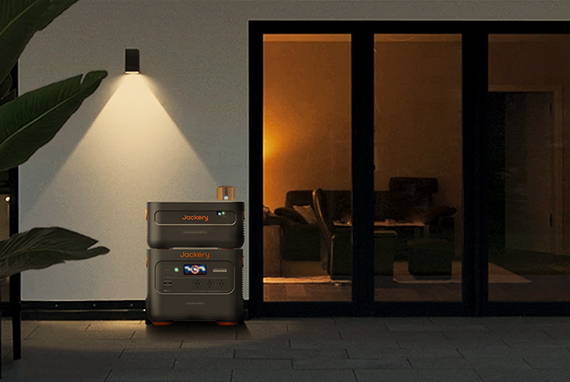In Australia, the demand for sustainable and reliable backup power solutions intensified due to increasing weather events and reliance on electricity for day-to-day activities. Home battery storage, chiefly our Jackery portable power stations, is an option. They store energy from solar panels and offer a renewable power source during outages. A key perk is their lower environmental impact than fuel generators. They emit no greenhouse gases during operation. Conversely, traditional fuel generators depend on non-renewable fuels and cause carbon emissions.
It is worth noting that the installation of residential battery systems in Australia has experienced growth in recent years. Accordingly, it highlights a shift towards more eco-friendly power battery backup for home solutions. Battery technology improvements bolster this trend, which renders these systems more economical and efficient. It helps address environmental concerns and the requirement for reliable power backup in Australian homes.
Home Solar Battery Storage vs. Traditional Fuel Generators
In this part, we’ll see the difference between home solar battery storage and traditional fuel generators.
1. Home Solar Battery Storage
Home solar battery storage systems integrate solar panels with battery technology premeditated to store energy generated from solar power for later use. The working principle involves photovoltaic (PV) panels converting sunlight into direct current (DC) electricity. Subsequently, the household uses the DC electricity immediately or channels it into a battery storage system. The battery, often a lithium-ion or lead acid, stores this energy until needed.
When the stored energy is required, an inverter converts the DC power back into alternating current (AC) for use in the home. A key technical aspect of these systems is the charge controller. It regulates the flow of electricity into the battery, so it gets charged without being overcharged. A model for home battery storage is our Jackery’s power station, which stores solar energy and has features to adjust energy usage.
2. Traditional Fuel Generators
Traditional fuel generators convert fuel’s chemical energy indirectly into electrical energy. Typically, they use diesel, gasoline, or natural gas as fuel. These generators comprise an internal combustion engine connected to an alternator. The engine burns fuel to create mechanical motion, which, in turn, energies the alternator to produce electricity. The process involves electromagnetic induction, where the movement of a conductor (like copper wire) in a magnetic field induces current. Its utilisation normally needs extra consideration on noise level, emissions, and ongoing fuel costs.
Advantages of Home Solar Battery Storage
Next, we are going to explore the advantages associated with home solar battery storage systems in Australia.
Home battery storage in Australia augments the eco-friendliness of renewable energy systems, mainly solar power. While storing excess energy generated during peak sunlight hours, these systems guarantee that the green energy is not a waste. For instance, in a typical Australian home, solar panels might generate more power than is used during the day. Home battery storage captures this surplus and diminishes reliance on fossil fuels during less sunny periods or at night. This continuous cycle lowers the carbon footprint of households.
- Consistent Power Supply: In Australia, where weather conditions can be dangerous and unpredictable, home battery storage provides a reliable power source. It is a backup battery for a home during power outages triggered by natural events like bushfires or severe storms. For example, in a region prone to such occurrences, a home battery can preserve an essential power supply so that refrigeration, lighting, and communication devices remain active.
- Grid Stability Enhancement: Home battery storage also stabilises the electrical grid. While storing surplus energy and releasing it when demand is high, these systems keep a balanced energy load. It is relevant in Australia, where the widespread use of solar panels can cause fluctuations in power supply. Home batteries moderate these fluctuations and prompt a more stable and reliable grid.
- Minimal Maintenance Requirements: The technology behind home battery storage systems is meant for permanence and low maintenance. Unlike traditional power sources, they have fewer moving parts for less wear and tear. In Australia, homeowners can enjoy a sustainable power source with minimal ongoing costs. Regular maintenance tasks are straightforward and may be managed by homeowners, like ensuring the system is clean and free from debris.
- Efficiency in Energy Use: Home battery storage systems increase the efficiency of household energy use. While storing spare solar energy, they enable the discharge of electric current. It is effective in Australia, where energy prices may be high. While maximising solar energy, households can cut their reliance on expensive grid electricity and electricity bills.
In Australia, home battery storage allows households to become less dependent on the national grid. It is precious in remote or rural areas where grid access can be less reliable or expensive. While storing solar energy, homes can operate independently for extended periods, which helps decrease or exclude the demand for grid-supplied electricity. - Return on Investment: The long-term savings from home solar battery storage can offset the initial investment in this system. In Australia, where household electricity prices are among the ten highest internationally[1], the ability to store and use solar energy can lead to savings on power bills. Over time, reducing electricity costs means the system pays for itself. It alludes to a process that can be faster in sunnier parts of the country where solar energy generation is higher.
- Increased Home Value: Installing home battery storage is an investment in the property. In the Australian housing market, people seek homes with modern, sustainable technologies like solar panels and battery storage. This trend reflects a growing mindfulness of environmental issues and a desire for energy independence. Consequently, homeowners who install these systems can expect an increase in their property’s value, alongside the benefits of reduced energy costs.
Considerations for Traditional Fuel Generators
Now, let’s look at some of the critical considerations for traditional fuel generators.
Traditional fuel generators, such as those powered by gasoline or diesel, emit pollutants that can significantly affect air quality and human health. The combustion of fossil fuels releases pollutants such as nitrogen oxides (NOx), sulphur dioxide (SO2), particulate matter, and carbon monoxide (CO) into the atmosphere. These pollutants contribute to smog formation, respiratory problems, and other health issues, and they have attracted the Australian government's attention, proven by relevant regulations in the National Environment Protection (Ambient Air Quality) Measure. Additionally, the release of carbon dioxide (CO2), a greenhouse gas, contributes to climate change. Managing and mitigating these emissions are critical considerations when assessing the environmental impact of traditional fuel generators.
Noise pollution is a noteworthy concern for backup generators, especially in urban areas of Australia. Note that the generator’s operating noise level is worth extra consideration because it can cause community complaints or non-compliance with local regulations. Beyond noise, traditional fuel generators can cause vibration and harmonic disturbances. Thus, it impacts nearby sensitive equipment or structures. These effects are relevant in Australian environments where precision is paramount.
3. Fuel Costs and Maintenance
Traditional fuel generators typically rely on fossil fuels such as diesel or gasoline. The cost of these fuels can be subject to market fluctuations and geopolitical events, leading to unpredictable and potentially high fuel costs. Individuals relying on traditional fuel generators need to consider the impact of fuel price volatility on their operational expenses. Additionally, the environmental and social costs associated with fossil fuel use, such as air pollution and carbon emissions, may result in regulatory changes or taxes that could further increase fuel costs over time. These economic and environmental factors influencing fuel prices may lead to long-term cost risks.
Traditional fuel generators require regular maintenance to ensure optimal performance and reliability. Maintenance tasks include oil changes, filter replacements, and overall system checks. The frequency of maintenance depends on usage, environmental conditions, and the specific generator model. Maintenance costs, including labour and replacement parts, should be factored into the overall cost of ownership for traditional fuel generators.
Choosing the Right Home Solar Battery System
If you are looking for a more cost-effective and eco-friendly option, a solar battery could be a preferred choice. Here are some products to consider if you want to choose an ideal green home battery storage system.
Our Jackery Explorer 1000 Pro Portable Power Station for home battery storage solutions handles moderate energy needs. It features a 1002Wh lithium-ion battery and delivers a 1000W continuous output with a peak surge capacity of 2000W. Our unit suits homes needing backup power for blenders, space heaters, toasters, and more. Its three-way recharging capability (solar, wall, and car) and a fast recharge time of just 1.8 hours via an AC outlet render it a quick-response power reserve. In addition, the unit’s advanced Battery Management System (BMS) certifies safety with over-voltage, temperature control, and short circuit protection.
Our Jackery Explorer 2000 Pro Portable Power Station is an optimum home battery storage solution for larger households or those with higher energy demands. It possesses a considerable 2160Wh capacity and a vigorous 2200W continuous power output, with a peak of 4400W. This capacity enables it to power several larger appliances concurrently. Our unit is ideal for homes requiring an emergency power supply for full-sized refrigerators or air conditioners. Its rapid recharging feature allows for a full recharge in just 2 hours via a wall outlet. Apart from that, as a qualified backup battery for the home, it includes a leading BMS that guarantees device protection and prolonged existence.
Our Jackery Explorer 2000 Plus Portable Power Station elevates home battery storage with its expandable capacity from 2 kWh to 12 kWh when additional battery packs are supplementary. This renders it adaptable for home energy needs, ranging from regular power backup to extensive off-grid living. It features a high-performance 2042.8Wh LiFePO4 battery, ensuring up to 4000 charge cycles at 70% capacity for a longer life. Our unit delivers up to 3000W of power and can support heavy-duty appliances. The efficient solar charging capability and up to 25% conversion efficiency provide a sustainable and quiet power solution for homes.
In comparing home battery storage with traditional fuel generators, key points include home battery storage’s eco-friendliness, low operating costs, and reliability. In contrast, fuel generators offer on-demand power but at the expense of higher emissions and upkeep. Home solar battery storage is a sustainable and efficient backup power solution for consistent energy with minimal ecological impact. For those considering such an option, Jackery offers many storage products for energy needs to validate a reliable and green battery backup power supply for homes in Australia.
[1] Statista/ 2023, “Household electricity prices worldwide in March 2023, by select country”. Available at:
Best-selling Jackery Solar Generator






